Gene therapies for retinal diseases
The lab of Stefan Liebau is developing gene- and protein-based therapeutics for diseases in the retina using human iPS-based retinal organoids and organ-on-chip technologies. The main translational research directions are:
- Correction or inactivation of gene mutations causing severe congenital retinal cell degeneration using gene editing with CRISPR nucleases: Together with Prof. Ueffing and Prof. Wissinger from the Institute for ophthalmic research we have developed several CRISPR/Cas gene editing approaches for gene therapy of patients suffering from congenital retinal degeneration.
- Using CRISPR nucleases to model diseases: We have established various state-of-the-art methods of experimental disease modeling using CRISPR nucleases by e.g., introducing or correcting gene mutations, activating or inhibiting genes of interest, tagging of endogenous proteins by fluorescent markers. We apply the above techniques to primary cells, iPSCs, retinal organoids, organ-on-chip systems and assembloids.
- AAV-mediated gene therapy and gene supplementation: We use our organoid platform as a screening platform for novel approaches in gene therapy and gene supplementation (Achberger et al., 2021, Pasquini et al., 2020).
GRT projects
- CRISPR/Cas9-based gene therapy approaches for retinal diseases
- Evaluation of causative variants in patients with retinal degeneration using NGS-based OMICS, disease modeling in iPSCs, retinal organoids and organ-on-chip systems
- AAV-mediated therapeutic approaches
GRT expertise
- Improved virus-free generation of human iPS cells from easy to harvest hair keratinocytes
- Development of gene therapies for retinal diseases using CRISPR nucleases
- Development of human organoid- and organ-on-chip based pharmacological and toxicological screening platforms
- Disease modeling of retinal diseases using human patient-specific iPS-dferived cells and organoids
- Mechanisms of human retina and neural development
Main GRT techniques
- State-of-the-art gene editing approaches for primary cells and iPSCs
- Delivery of mRNA and AAVs
- Tagging of endogenous proteins using CRISPR nucleases
- Genetic screening of various cell systems
- In vitro modeling of neurological disorders
- Bioinformatic analyses of NGS data for identification of disease-causing gene mutations
- De novo design and functional validation of various therapeutics
Ongoing and requested funding
A total of >10 million EUR funding. Ongoing:
- Multimodal analysis of CRB1 related retinal degeneration in human iPSC derived organoids, DFG 219.225€
- Evaluating the role and therapeutic potential of cytoskeletal dysregulation in CRB1-linked retinal degenerations DFG 315.000€
- Correcting a common CRB1 mutation by RNA base editing – towards an unprecedented treatment strategy for retinal degeneration DFG 350.000€
- Microphysiological Retina-on-chip Roche 148.000€
- Research beyond borders/Retina Organoids Boehringer 80.000€
- Exploration of a CLN2/TPP1 gene therapy using the retina-on-a-chip platform REGENXBIO Inc 606.012€
- Medical Faculty of The Eberhard Karls Universität Tübingen -2x Fortüne 250.000€
Patents
- Microphysiological organoid culture. DE 10 2017 217 738. PCT/EP2018/076645. CA3078426A1
- System zur Asservation von Haarproben (SKG). DE 10 2016 118 968.5. PCT/EP2017/075336.
- LinkerSpheres, DE10 2021 132 190.5.
- haiRNA, EP22 170 479.4


